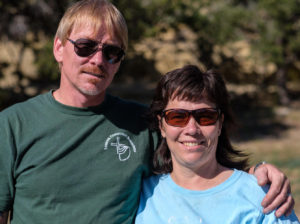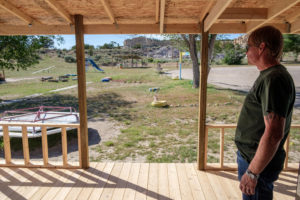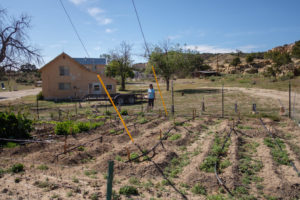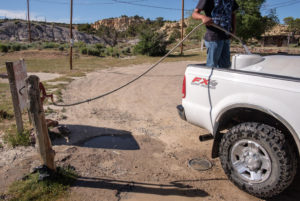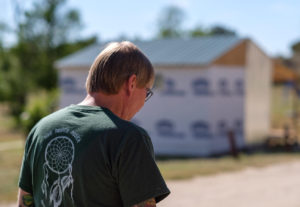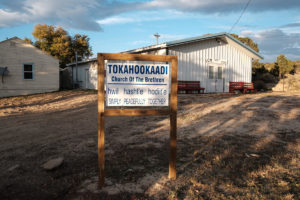JIM & KIM
“When do the people become important?”
Pastor, Lybrook Community Ministries
“The mission has been here since 1953… We got here almost 3.5 years ago and the place had almost shut down… My wife and I learned about the need for a director here, and a pastor for the church, and two weeks later we were here. We sold everything we had in Kansas, loaded up our family and moved here. Had no idea what we were going to do. It’s been perfect. It’s been great.”
“At that time there was uncertainty as to why we were here. [People] weren’t were sure what our motives were. So it took about two years, a little over two years for the local people to start feeling comfortable with us here and start asking questions.”
“We saw that the need varied everywhere from home repairs, to garden projects, to hauling water for people. Somebody would come into the mission and say, ‘Hey I need some firewood.’ So we’d see what we could do to help them get some firewood. We’re not financially in a position where we can help buy things for people, but we can help them be self-sustainable by getting things themselves and teaching them how to do that.”
“We’ve recently got into activism work, working with Kendra, trying to get the word out as to what is happening here. Trying to make the oil companies, the gas companies, accountable for what they’re doing. We’re not necessarily trying to be against oil and gas, but we feel as though it could be done in a way that is beneficial to the community and also protect the resources that are here.”
“My biggest question, I guess, is when do the people become important? You come out here and you see how much money is put into all this other stuff, and how little money is put into the people and into the community.”
“Two years ago the laundromat over the hill closed down and people have to go 50, 60 miles to do their laundry. People do not have reliable transportation, so they have to hitchhike or they have to carry the laundry, and so we decided at that time we would try to put in a laundromat. We did it in a way that people could come here, do their laundry and they could see their kids in the park.”
“There’s a lot of misconceptions about people in this area. Well, there’s a lot of misconceptions about indigenous people to begin with. They think they sit at home and collect a check every month and that’s not true. The government does not support the people out here the way that other people think that they do.”
“The oil and gas in the area, some people have allotments and they receive money from that. But it’s not enough money to even survive on, it’s a very, very minimal amount of money. And so, there has to be other avenues to go to help people be self-sustainable.”

